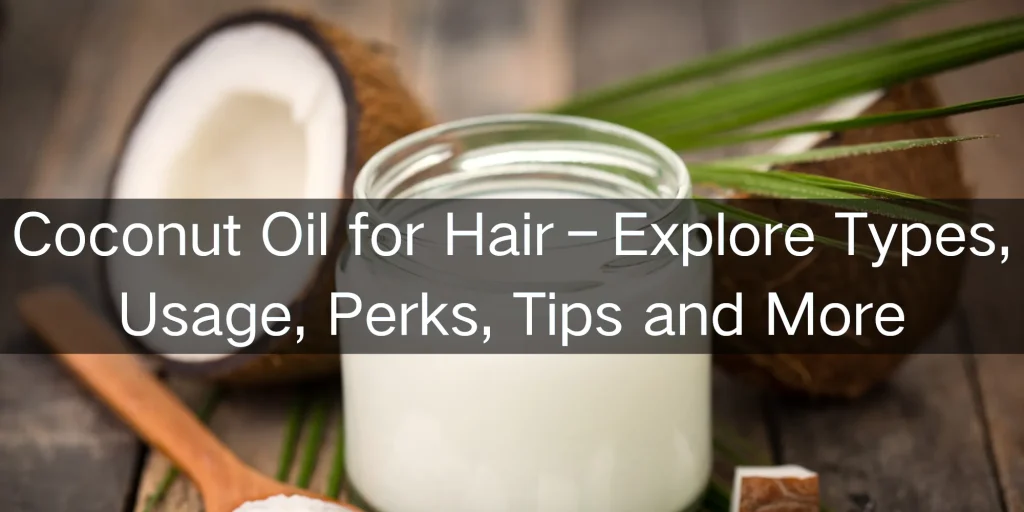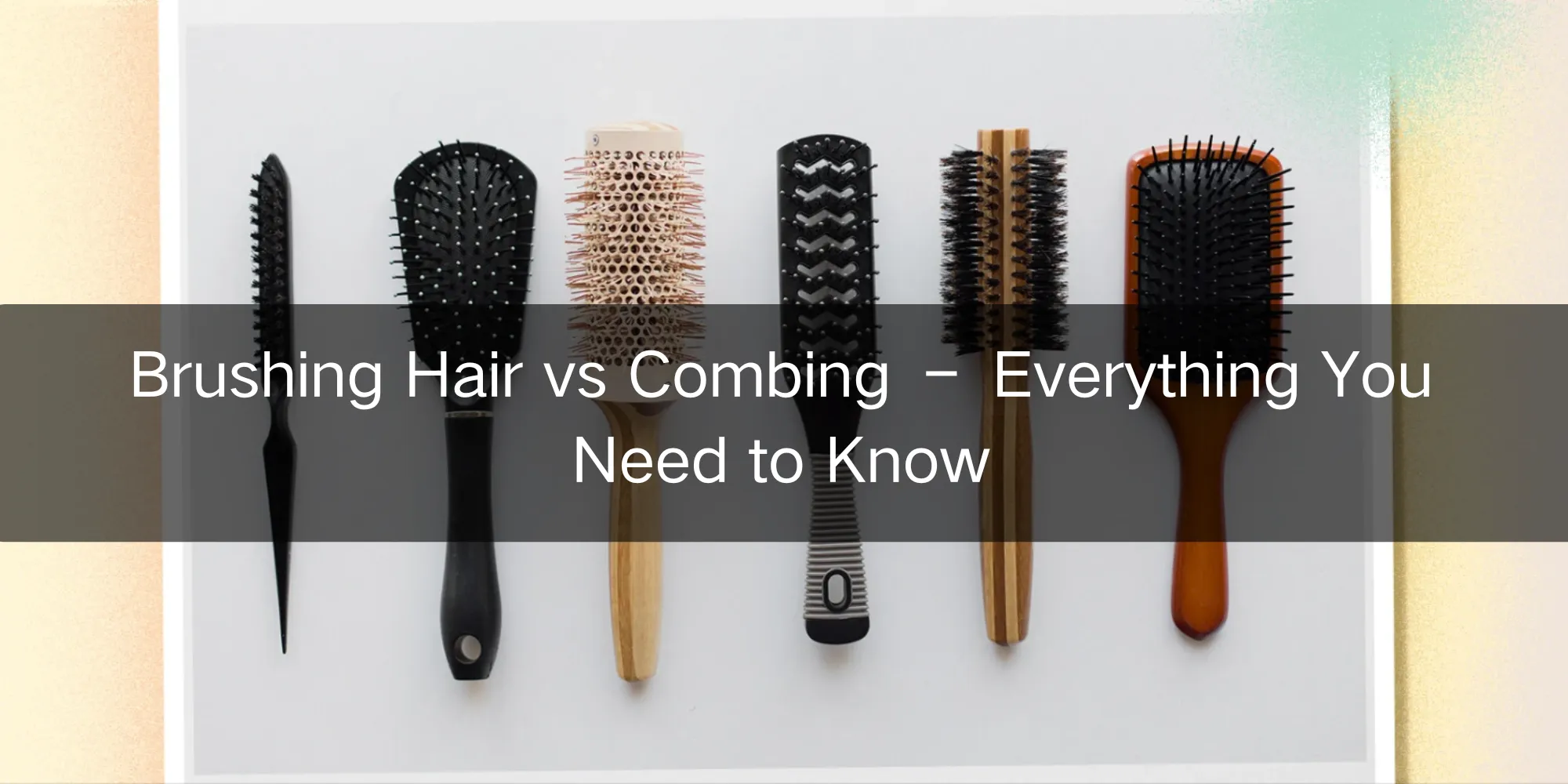Coconut oil for hair is a strong natural treatment, which aids you in combating the dryness, breakage, and scalp problems. However, to achieve the actual results, you have to select the correct type-virgin, refined, or fractionated- and apply it in the appropriate manner. In this guide, not only will you learn precisely how to use coconut oil on your hair and what it can do to your hair, but you will also learn the best advantages, how to choose the right one, and the recommended tips to use coconut oil on your hair. Keep reading!
Composition and Properties of Coconut Oil
Coconut oil contains a lot of medium-chain fatty acids, including lauric acid and caprylic acid, which makes it an effective hair nourishing oil. These saturated fats go deep into your hair shaft, not just cover it like an oil. Your hair enjoys high levels of moisture, which softens and smooths dry hair. Lauric acid also provides the oil with antimicrobial and antifungal properties, making your scalp healthy. Its low molecular weight enhances easy absorption of the oil, maximization of hydration and protection.
Types of Coconut Oil for Hair
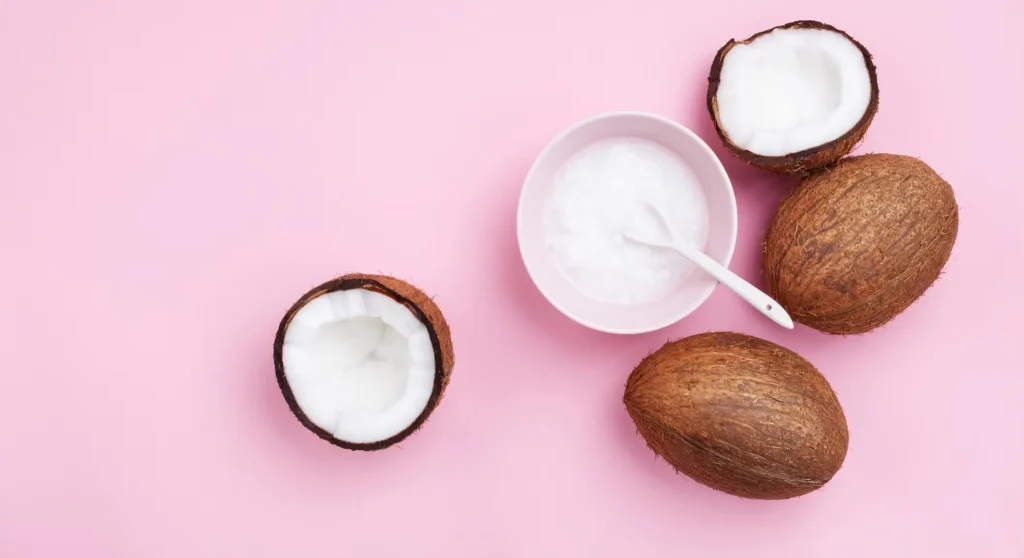
Virgin coconut oil is extracted without any chemicals and at low temperatures using the fresh coconut flesh. It maintains natural nutrients, antioxidants, and a strong coconut aroma. You may apply it to deep condition your hair, treat your scalp and practice natural hair. It would be ideal when your hair is thick or dry. But, thin hair can end up being heavy or oily. Apply sparsely so as not to accumulate.
The coconut oil is refined to remove impurities. It is normally bleached and deodorized to give you a neutral smell and lighter consistency. Use on a daily basis, can be used on more delicate scalps. You can use it as a light leave in treatment. However, during the refining process, some of the nutrients in virgin oil can also be lost.
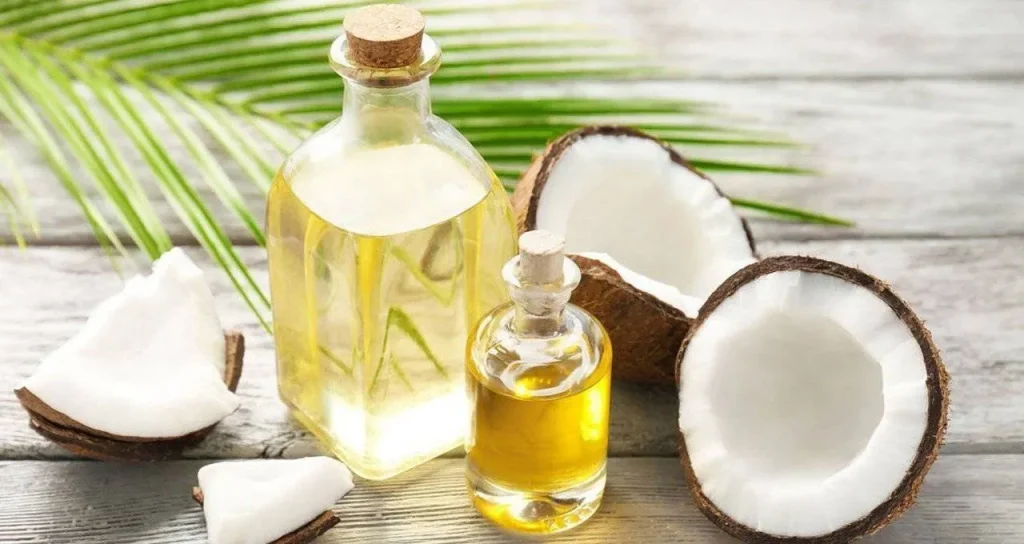
Fractionated coconut oil is in liquid form at room temperature because some of the fatty acids have been removed including lauric acid. It is not greasy and it spreads quickly. You will love to use it as serums or conditioner or even mix with essential oil. Nevertheless, remember it is not as hydrating as crude oil.
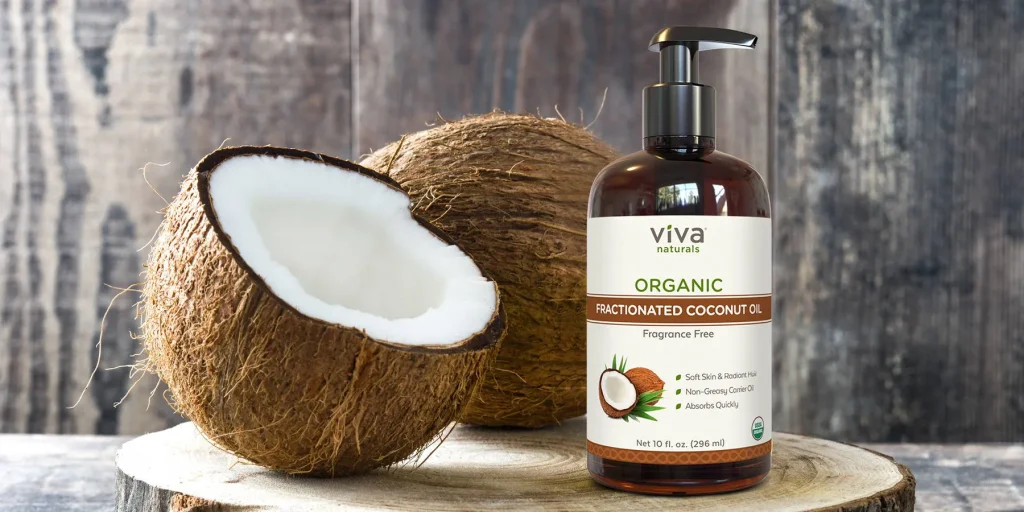
Organic coconut oil contains no chemicals and is safer to use on an everyday basis. The non organic ones are less expensive, but they may contain pesticides. When in doubt, read labels to make good choices.
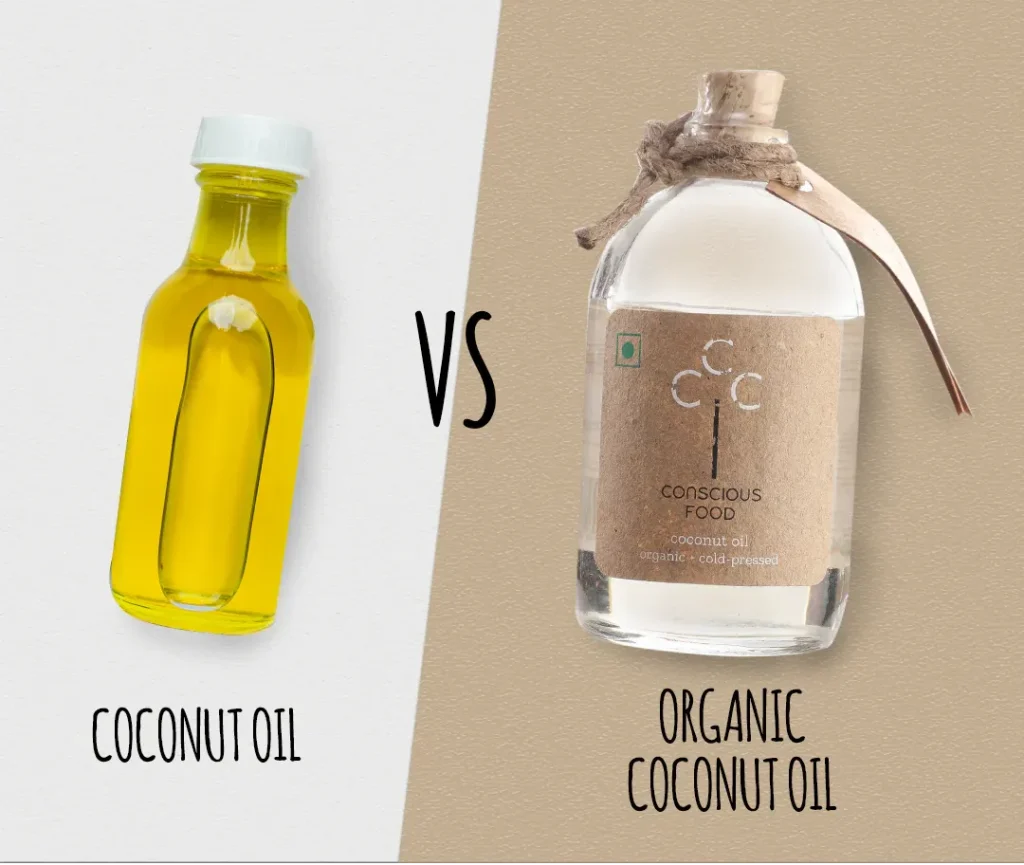
| Type of Coconut Oil | Description | Benefits | Best For | Shelf Life | Considerations |
|---|---|---|---|---|---|
| Virgin (Unrefined) Coconut Oil | Extracted from fresh coconut meat without chemical processing | Retains natural nutrients, antioxidants, and coconut scent; deeply nourishing | Deep conditioning, scalp treatments, natural hair care routines | ~2 years | May feel heavier on fine hair; strong coconut aroma |
| Refined Coconut Oil | Processed to remove impurities, often bleached and deodorized | Neutral scent, lighter texture, suitable for sensitive scalps | Daily use, lightweight leave-in treatments | ~3–5 years | May lack some nutrients due to processing |
| Fractionated Coconut Oil | Liquid form with certain fatty acids (e.g., lauric acid) removed | Non-greasy, easily absorbed, lightweight | Hair serums, leave-in conditioners, mixing with essential oils | ~2–3 years | Less moisturizing than virgin coconut oil |
| Organic Coconut Oil | Free from pesticides and synthetic fertilizers; can be virgin or refined | High purity, environmentally friendly | All hair care applications, eco-conscious consumers | Same as virgin (~2 years) or refined (~3–5 years) | Slightly more expensive |
| Non-Organic Coconut Oil | May contain trace pesticides or chemicals; can be virgin or refined | Cost-effective, widely available | Budget-conscious consumers | Same as virgin (~2 years) or refined (~3–5 years) | Potential for lower purity |
How to choose the best Coconut oil for hair?
The first step in selecting the right coconut oil to use on hair is to determine the hair type. In case you have fine hair, use lightweight and fractionated oil. In the case of dry or curly hair, virgin coconut oil is ideal. Take into consideration your issues, such as dandruff or breakage, as well as your personal taste in fragrance or feel. The level of processing of the oil should always be compared with your styling regimen and the sensitivity of your scalp.
Advantages of Coconut Oil for Hair
- Moisturizes and hydrates:Coconut oil is absorbed in your hair shaft and seals in the moisture. It aids in combating dryness, controlling frizz and bringing back smoothness to damaged or color-treated hair.
- Makes hair stronger:Coconut oil makes your hair stronger by preventing protein loss in the hair strand. With frequent application, you will find fewer split ends and less breakage.
- Facilitates scalp health:With its antifungal and antibacterial qualities, coconut oil assists you to tackle dandruff and scalp infections naturally. It also relieves itching and irritation, and provides a better scalp environment to grow hair.
- Promotes hair growth:Coconut oil enhances hair growth because when it is massaged into the scalp, it improves blood circulation. This activates hair follicles and assists you to grow thicker and healthier locks in the long run.
- Adds shine and softness: The coconut oil also smooths the hair cuticle, leaving your hair strands with a glossy finish. It will be less effortful to brush away the knots and prepare your hair.
- Protects against environmental harm: It protects against environmental harm such as environmental damage caused by harmful UV rays, pollution, and heat by styling tools. You provide protection to your hair on a daily basis.
- Coconut oil is natural alternative to chemicals:You do not use sulfates, silicones, and parabens when you use pure coconut oil. It is a safe bet when you are in need of a clean beauty product.
Advantages of Coconut Oil for Hair
air coconut oil has extensive positive effects, yet you must understand that there are also certain negative effects that should be addressed and prevented:
- Overuse risk:When using too much, particularly in finer or low-porosity hair, it risks weighing strands down, leaving them greasy. You may also find that you get buildup when you fail to wash it out.
- Alergic reactions or sensitivities: Even though it is a rare case, some individuals can develop irritation or redness. It is advisable to do a patch test on your inner arm first before using it on your scalp or hair.
- Does not suit every hair type:Coconut oil does not absorb well on high-porosity hair. It may aggravate the situation in case your scalp is oily already, so the hair becomes heavy or limp.
- The significance of quality:It is always preferable to select quality coconut oil. Low-grade or adulterated oils can be deprived of nutrients and even be harmful to your hair.
- Other product interactions:Do not combine coconut oil with heavy silicones or mineral oils. Absorption can be blocked by these combinations and the oil can be rendered less effective.
How to Use Coconut Oil for Hair: Step-by-Step
- Pick the correct coconut oil:Go with the virgin coconut oil to receive the most nourishment.
- Quantify it:1-2 tablespoons, depending on the hair length and thickness.
- Heat oil:Coconut oil (solid) can be heated by gently warming to a liquid so it can be applied easily.
- Section hair:Section hair into 4-6 parts to distribute evenly.
- Apply to hair:Begin at the end of the hair, working to the mid-lengths; do not over-apply to the scalp unless dandruff is being treated.
- Scalp massage (optional):In case of scalp health, use fingertips to massage oil on scalp.
- Hair protection:Use a shower cap or a warm towel to trap the heat and improve penetration.
- Leave on:Deep condition the oil up to 30 minutes or overnight.
- Wash well:Wash thoroughly with shampoo twice to get rid of oil, and conditioner when necessary.
- Frequency:Apply 1-2 times a week based on hair requirements.
- Select the appropriate coconut oil:Fractionated or refined coconut oil to use on the lightweight version.
- Measuring: 1 2 drop short hair, up to 1 teaspoon long hair.
- Rub Between hands:Rub the oil between hands to emulsify.
- Use sparingly:Use on ends and mid-lengths to tame frizz and add shine.
- Avoid scalp:Avoid greasiness of the roots by avoiding the use of oil.
- Application:Apply daily or as required to moisturise and protect.
- Virgin coconut oil:The oil has antifungal properties that are suitable to the health of the scalp.
- Combine with essential oils (optional):Add 2 3 drops tea tree or peppermint oil to get more benefits.
- Scalp application:The product can be applied to the scalp using a dropper or fingertips.
- Rub softly:Awaken circulation and promote distribution.
- Leave on:Leave 20-30 minutes and rinse off, or leave overnight (intensive treatment).
- Rinse and shampoo:Wash thoroughly to prevent build up.
- Frequency:1-3 per week until symptoms are improved.
- Add ingredients:Coconut oil can be combined with honey, aloe vera, or avocado to provide additional nourishment.
- Apply to hair:See deep conditioning instructions above.
- Leave on:Leave 30-60 minutes to soak in.
- Wash well:Wash and condition as required.
- Frequency:Apply once a week to hydrate or repair.
Tips for Maximizing Benefits
In order to maximize the use of coconut oil in the hair, it is good to adhere to the following tips. The proper use of the oil prevents any buildup and guarantees actual results.
Apply the appropriate quantity to your hair type
In case you have fine hair, a few drops are enough to make it heavy. Conversely, thick or curly hair can use more oil, so you can use it more liberally as a way of applying it deeper into the hair in order to hydrate and control.
Blend in with heat to absorb better
To increase the absorption of the oil in your hair, you can simply warm the oil gently prior to application. Another thing you can do is wrap your hair in a hot towel or use a hair steamer after applying the oil to make it get inside better and improve the effects of conditioning.
Combine with natural boosters
To enjoy even more benefits, combine coconut oil with such essential oils as rosemary, which promotes hair growth, or lavender, which has a calming effect on the scalp. It is also possible to mix it with natural products such as honey or yogurt to add more moisture and nutritious value.
Store well to maintain quality
Coconut oil should be stored in a cool dry place out of direct sunlight. The oil should be discarded when it smells strange or when the texture is weird because it has gone rancid.
First do a patch test
Test the coconut oil by placing it on the inner arm, before applying it on the whole scalp or hair. This will assist you to test whether there is any allergic reaction or skin sensitivity, so that it can be used safely and comfortably.
Comparison with Other Hair Oils
Argan Oil vs. Coconut Oil
The coconut oil gets deep into your hair shaft because of the low molecular weight. It is therefore perfect to fight protein loss and to make your hair strong inside. However, argan oil is primarily a surface sealant. It provides immediate shine and smoothness without penetrating as much. You have coconut oil when you want to repair permanently. To get the fast styling and frizz control, select argan oil.
Coconut Oil vs. Castor Oil
Coconut oil is lighter and spreads easily and castor is very thick and sticky. Castor oil is very stimulating to the scalp and therefore, it is excellent in stimulating hair growth. But what about balanced scalp care with antimicrobial properties, coconut oil will provide you with that without the mess. You may even combine the two to a better treatment.
Olive Oil vs. Coconut Oil
Olive oil is a great moisturizer, whereas coconut has a better penetration. Both are hydrating, and coconut oil guards against the loss of protein as well. In most households, olive oil is more readily available and cheaper. You may alternate them depending on the availability and your hair needs.
Conclusion
Coconut oil as a hair product is a natural, cheap and effective method of nourishing, protecting and restoring your hair. Virgin to fractionated, each type has a specific use depending on how your hair is and what your hair needs. The selection of the type and proper application can make the difference. Coconut oil has it all; whether you are fighting dryness, stimulating growth or defending your scalp, coconut oil is the answer. Start small, experiment smart, and have your hair enjoy this classic cure.
FAQs
Is Coconut Oil Good For Newborn Hair?
Yes, you can use coconut oil on newborn hair. It’s gentle, natural, and helps moisturize the scalp. It also soothes cradle cap and supports healthy hair growth. Always patch test before full use.
Is Fractionated Coconut Oil Good For Hair?
Yes, especially if you prefer a lightweight option. Fractionated coconut oil absorbs quickly and doesn’t feel greasy. You can use it as a leave-in conditioner or mix it with essential oils.
Is Coconut Oil Good For Your Color Treated Hair?
Coconut oil helps protect color-treated hair by reducing protein loss and adding moisture. But use it sparingly. Too much may cause buildup or interfere with salon treatments. Apply only to mid-lengths and ends to avoid fading your color.

